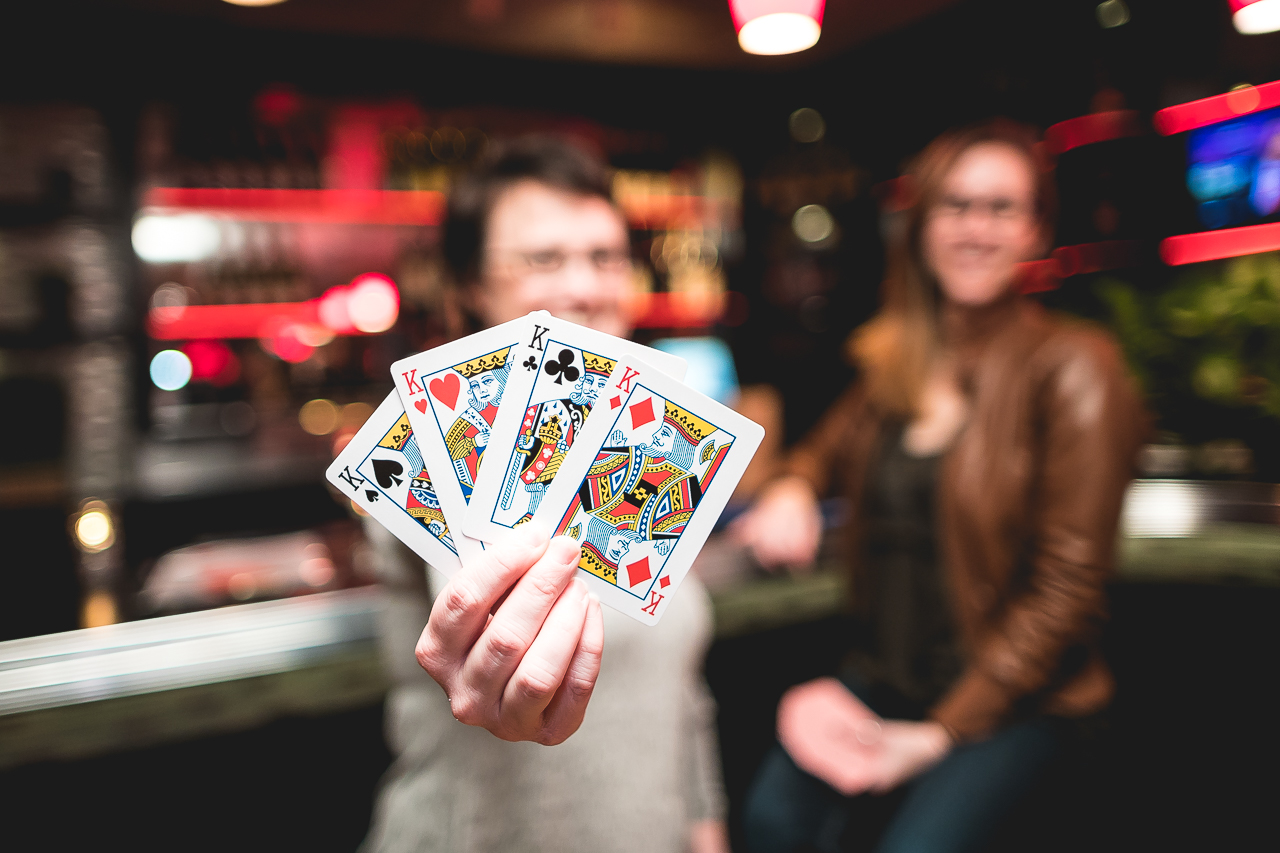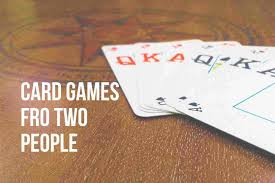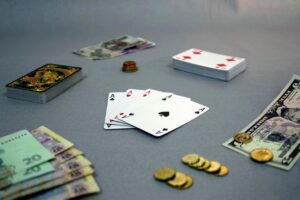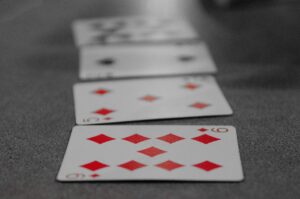Talking the Talk

If you’ve ever seen films such as “Rounders,” (which might be our favorite!) dealing with poker or even watched a televised tournament, you’ve probably noticed that the game has its own language. More than other casino games, poker relies on a large vocabulary that is understood by all participants and so, it’s crucial for beginners to learn some of this terminology. The more you take in, the more you’ll comprehend, and the more comfortable you’ll become in expressing yourself. This will lead to more respect from your opponents as well and you’ll be able to think about the actual GAME instead of the words. What follows below is a short run-down of very common poker terms that all beginners should learn, and all experienced players probably already know by heart. Note that these terms are designed for players who understand the rules of simple Texas Hold’em. Check out our more in-depth glossary for definitions of other words.
Key Terms
ALL-IN : If you run out of chips during a hand, but don’t wish to fold, you are All-in. This means you have the potential to win a share of the pot up to and including your last contribution to that pot. You cannot share in any bets added beyond that point. These bets form a side-pot. The all-in is also used for situations where a player in a hand loses connection to the server.
AWAY-FROM-TABLE: In tournaments, you may not “sit out”. Rather, you may be “away-from-table” which means you are dealt into every hand, posting blinds when it’s your turn, and then folded when there is a raise before the flop, or a bet after the flop. When you are in a tournament and need to leave, time-out, or lose your connection, you are automatically marked as “away-from-table”.
BLINDS (SMALL BLIND/BIG BLIND): Blinds are required bets that take the place of an ante, or pre-game bet. he person to the left of the dealer must pay the small blind and the person after him or her has to pay the big blind. Blind values differ according to the table at which you’re playing.
BOARD CARDS: Board cards are the cards that everyone shares and are located in the center of the table. They’re occasionally also referred to as “community cards.”
CALL: When a player matches the prior bet on the table, that action is termed the call. CHECK : If there is no bet on the table and you do not wish to place a bet, that action is termed a check. You may only check when there are no prior bets.
DRAW: Drawing means hoping to improve your hand by relying on the cards that will come up on the board. You are considered to be “on a draw” when you’re depending on board cards to complete your hand.
FLOP: The term for the first three cards that are dealt in Hold’em – those that come up at the same time and are shared by each player.
IMPLIED ODDS: Implied odds are basically the same as pot odds except that implied odds consider future bets as well. In other words, you may call a bet at the flop, but have implied odds of establishing bigger bets in later rounds if you hit your draw.
LIMIT POKER: Limit poker is poker with fixed bets. In a $2-$4 limit game, all bets and raises are $2 in the first 2 rounds (pre-flop and flop), and $4 in the last two rounds (turn and river).
LONGHAND: Type of poker game with seven or more people playing simultaneously.
OUTS: Essentially the number of undealt cards that can help your hand. If the flop is a Q, J, and 2 and you have a 10 and a 9, you want a K or an 8 to complete the straight. Since there are 4 K’s and 4 8’s in the deck, you are said to have 8 OUTS in all.
POSITION: Your location at the poker table. The dealer has the most advantageous position since he bets last and can therefore better understand what other people are holding. The small blind has the worst position because he goes first.
POT ODDS: Pot odds are chiefly a comparison of the bet you’re making with the overall pot total. If your chances of winning the bet are relatively solid compared to the amount in the pot (as in, if there’s a lot to win from a decent bet) your pot odds indicate that it’s in your interest to take the bet. So, taking a $10 bet in which you have an 18% chance of winning might not be a bad idea if the total of the pot is $100. But taking a $300 bet in which the pot total is $400 and your chances of winning are still 18% is NOT such a good idea. Understanding pot odds is absolutely vital to being successful at poker.
PRE-FLOP: Pre-flop refers to the period in the game where each player has received 2 cards, but the community cards have yet to be dealt.
RIVER: the name of the 5th and final card to be dealt in Hold’em; occurs after the turn.
SHORTHAND: Type of poker game with 6 or less people.
TURN: the name of the 4th board card to drop in Hold’em; occurs after the flop.







